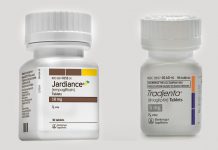A new study has suggested that Fosamax (alendronate), a widely prescribed osteoporosis drug, could reduce the risk of type 2 diabetes, according to Medicine Net.
The study, presented Sunday at the annual meeting of the European Association for the Study of Diabetes, suggested that taking Fosamax for at least eight years could potentially reduce the risk of type 2 diabetes by more than 50%.
Rikke Viggers of Aalborg University Hospital, Denmark, and colleagues, who conducted the study, provided more insight into the association between osteoporosis and type 2 diabetes. However, they cautioned against using Fosamax as a diabetes drug until they have more data.
Dr. Kendall Moseley of the Johns Hopkins Metabolic Bone & Osteoporosis Center, who was not part of the study, said, “I’m a little hesitant to get all excited about the notion this may be a preventive drug.”
The study researchers said it is clear that diabetics are at greater risk of bone fractures.
Dr. Moseley said, “Type 2 diabetes is associated with a higher risk of fracture, which is a bit of a surprise considering that individuals with diabetes typically have normal if not elevated bone density. Traditional screening methods don’t pick up the risk for fracture” in diabetics.
The team said recent animal studies have suggested that “the way osteoporosis drugs affect bone cells might also influence the body’s ability to regulate blood sugar levels.”
So, they looked at more than 163,000 people with type 2 diabetes in Denmark from 2008 to 2018 and compared them with over 490,000 people without diabetes.
Dr. Moseley said, “Prescription records showed which of the people tracked in the study had ever taken alendronate, which is one of the oldest drugs on the market for treating osteoporosis.”
Fosamax is a bisphosphonate drug that prevents the bones from losing calcium and other minerals, preventing and treating osteoporosis.
The researchers found that people who took Fosamax for eight years or more had a 53% lower risk of developing diabetes. Also, they found that the risk of developing type 2 diabetes was much lower in people who took the drug for a longer period.
The authors explained that Fosamax might reduce low-grade inflammation, which has been shown to contribute to insulin resistance, according to Medicine Net.
Dr. Moseley said, “If the alendronate were promoting the release of undercarboxylated osteocalcin by the osteoblasts, would that maybe be the link between the alendronate and the reduced risk of diabetes?”
Undercarboxylated osteocalcin is a substance produced by bone-creating cells called osteoblasts, which might help the body to regulate blood sugar.
She explained, “We know that bone metabolism in type 2 diabetes is disrupted. Their bones are not as actively remodeling in diabetes. They’re not breaking down as much. They’re not building up as much. That might lead to bone fragility.” However, Dr. Moseley said it is too soon to make the judgment, adding, “More investigation is required.”





















